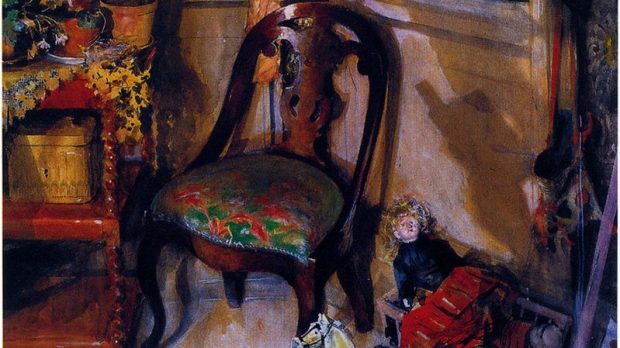We are on vacation. Some vacation. We’re staying at my mother-in-law’s home in Charleston, South Carolina, awaiting her arrival days hence from John Hopkins.
She has completed a debilitating, frustrating course of chemotherapy. Most of her children live here; one daughter lives an hour outside Baltimore and John Hopkins. She will deliver her mother home mid-week. The others are preparing the house for a hospital bed and the odd things that go with that. I do not think — I could be surprised — she will accept another course of treatment.
For twenty years and more this house and these people, my father- and mother-in-law, the entire extended family, have occupied my summer vacations. It is a noisy, mammoth family, and not without a degree of, ah, interpersonal excitement. I am introverted and there is not a one of them who could be categorized that way.
The times have changed. The nephews and sons I took crabbing on the Ashley River are grown adults, but the crab pots are still in the tool shed. There is a wedding for one of them over the weekend; four of my seven children will be attending. My mother-in-law has made coming home for the wedding a life’s goal.
My father-in-law died two years ago, making me the oldest living male in the family. I did not celebrate the honor. This morning I walked through his garage and workshop. Mostly cleared after his death, the residue of his presence yet lingers among the tools and automotive paraphernalia still there, now used by his sons. He knew cars, but only certain cars. He eschewed the ones with computer systems and fuel injectors. He didn’t want anything he couldn’t work on himself.
Walking through the work space swept me unexpectedly back to my own father’s death, two years before that of my father-in-law. They were much alike; they could build things, repair things, figure out the mechanics, jiggle a stubborn mechanism and make a thing work. But the resemblance ended there. My father-in-law could explain what he was doing; my father could not. He could see it in his mind and, simply make it, fix it, rebuild it, but he could not explain how. And there was this difference: My father-in-law read (possibly every published word I may have written), and my father rarely read at all.
And they collected tools, scads of them, in their lifetimes. When my father died I called an auction house, sold everything for one price, and walked away. Included was perhaps a ton of scrap metal for which, he insisted at age 90, he might still find a use.
A pacemaker at age 70 ruled out his welding passion, but my father kept it all — his welders, torches, everything. He did take a job, twenty years of it, delivering automobiles between Kansas City Ford dealerships. He lost his commercial drivers’ insurance at 90 (it times out, thankfully, at a certain age). Since it was an involuntary separation, he collected every dime of unemployment insurance he could get. He also received calls every week from incredulous unemployment clerks checking to confirm his age.
My father followed the poet’s advice and “did not go gentle.” His decline, his diagnosis of progressive kidney failure, the death of my mother not a year previous — these things outraged him to his very core and he lashed at those nearest to him. Not a habitually ungracious man, he nonetheless was deeply angered by his loss of independence and offended, that’s the word, by the prospect of death. At dinner not long ago with my son and his family, from out of nowhere it seemed, he wistfully blurted, “I miss grandma and grandpa.” I knew exactly what he meant.
My father-in-law died of vocal onset ALS, a very swift variety. From all I could see he accepted it with equanimity, a peaceful resignation, even as within a year the illness relentlessly immobilized him and long before silenced his morning prayers.
Now, another loss looms. I read a recent “listicle,” a form so popular with bloggers, 37 Things You Will Regret When You Are Old. It is not a weighty piece, quite light, very self-absorbed, puerile and self-referential. Unmentioned, never noted or remarked, are the losses in life that death imposes upon us long before we come to our own. I somehow think those “regrets” might be in there somewhere.
I think of the dead I knew in life and not infrequently I am filled with nostalgic, melancholic discontent. I regret their absence, an ache for these people who long marked and distinguished my living.
It is an ache many know, and we are reduced to pray in hope:
O God,
by whose mercy the faithful departed find rest,
send your holy Angel to watch over their graves.

